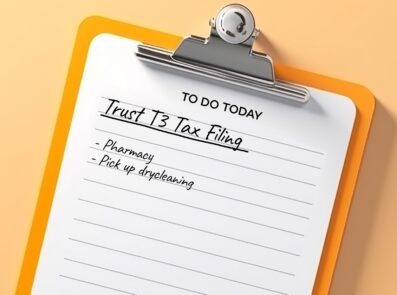Following a summer and fall of public and political outcry, federal Finance Minister Bill Morneau has announced updates to the changes around small business income sharing, and it appears the government has finally closed the door on the subject.
Income splitting, or “sprinkling”, will continue to generate political noise. Whether we agree or disagree with what the government is about to implement, we must deal with it.
Most important for the small business owner are these basic questions: “What does it mean for my bottom line? What does it mean for my family’s financial security?”
First: The new measures will be implemented as of January 1, 2018; however, businesses will have until December 31, 2018, to make necessary financial adjustments before filing their 2018 tax returns.
A so-called “reasonableness test”, first introduced when the proposed measures were announced in July, will stay in place, but with the following exceptions. For these groups, the tax rate is unlikely to change:
- A business owner’s spouse, provided that the owner meaningfully contributed to the business and is aged 65 or over.
- Adults aged 18 or over who have made a “substantial labour contribution” of at least 20 hours a week to the business. That’s 20 hours in the current tax year or over any of the previous five years. This five-year flexibility is intended to accommodate seasonal business owners, such as fishermen, farmers, campground owners, etc.
- Adults aged 25 or over who own 10% or more of a corporation that earns less than 90% of its income from the provision of services, or that is NOT a professional corporation, such as those used by dentists, physicians, lawyers, accountants, etc.
Family members aged 25 or over who do not meet these exclusions would be subject to a reasonableness test to determine their tax rate.
Small business owners will file their taxes by the usual self-declaring method and be taken at their word by CRA, unless the agency suspects a claim fails the reasonableness test. In that case, CRA will ask for further information, and, as with all income tax filings, an audit is always possible.
The Department of Finance estimates that the new measures will affect 3% of Canadian businesses, which translates into some 45,000. The figure is misleading.
While it might be true that 3% of businesses will pay more tax, the burden of additional complex paperwork and accountancy fees will impact most family-run small business owners. There is no free ride here.
The Senate of Canada’s National Finance Committee released a 50-page report on the proposed changes to coincide with the Finance Minister’s announcement. The Committee recommended that the government delay the implementation for another year (until January 1, 2019) or scrap the new measures altogether. Neither is likely to happen.
The Senate Committee also expressed concern over the definition of “reasonableness”; and, while it is CRA’s job to decide, there will certainly be legal challenges when the tax collector determines a claim is unreasonable and the business owner and his or her accountant disagree.
With 2017 almost over, the Department of Finance has sensibly compromised and given the small business community a year to fully adjust and navigate through the inevitable complexities of the new measures.
We’ll have more to say on the subject in the months to come, but the fundamental message to all our clients is this: If you are compensating a family member for contributing to your business, start gathering appropriate documentation now to help support future compensation. Don’t wait until the tax-man comes around.







